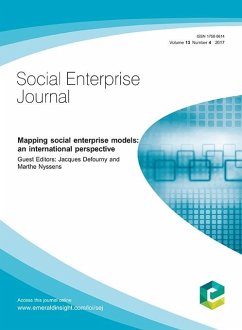The ICSEM (International Comparative Social Enterprise Models) Project is a worldwide research project aiming to identify, analyze and compare social enterprise models across countries, regions and fields. It brings together some 230 researchers under the coordination of Jacques Defourny and Marthe Nyssens.When looking at the various tentative SE typologies proposed in the seven ICSEM "e;country contributions"e; forming this special issue, the first impression may be that these national SE landscapes display strong divergences that add to a widespread feeling of confusion regarding conceptualizations and classifications of social enterprises. Such divergences are further strengthened by the extreme diversity of contextual features that can be observed among these countries.This actually results from a threefold choice made from the outset by the ICSEM Project, and which also constitutes its novelty: first, to avoid any a priory definition of social enterprise; secondly, to consider that the "e;social"e; component of SE may only be apprehended through its embeddedness in society; and thirdly, to adopt--as a result of the first two choices--a bottom-up approach, based on local researchers' perceptions and findings.A deeper look at the precise content of the proposed categorizations throughout this special issue leads to find significant support, in most countries (if not all), for each of the four SE models theorized by Defourny and Nyssens (2017) on the basis of "e;principles of interest"e; and "e;resource mixes"e;. Indeed, new generations of cooperatives developing their social or societal impacts, non-profit organizations looking for more market income and social businesses seeking to create a real blended value are found almost everywhere. As to social enterprises launched by public authorities, they represent a model which was fully unexpected until recently but unquestionably represents an increasingly important phenomenon in various countries.
Dieser Download kann aus rechtlichen Gründen nur mit Rechnungsadresse in A, B, BG, CY, CZ, D, DK, EW, E, FIN, F, GR, HR, H, IRL, I, LT, L, LR, M, NL, PL, P, R, S, SLO, SK ausgeliefert werden.









